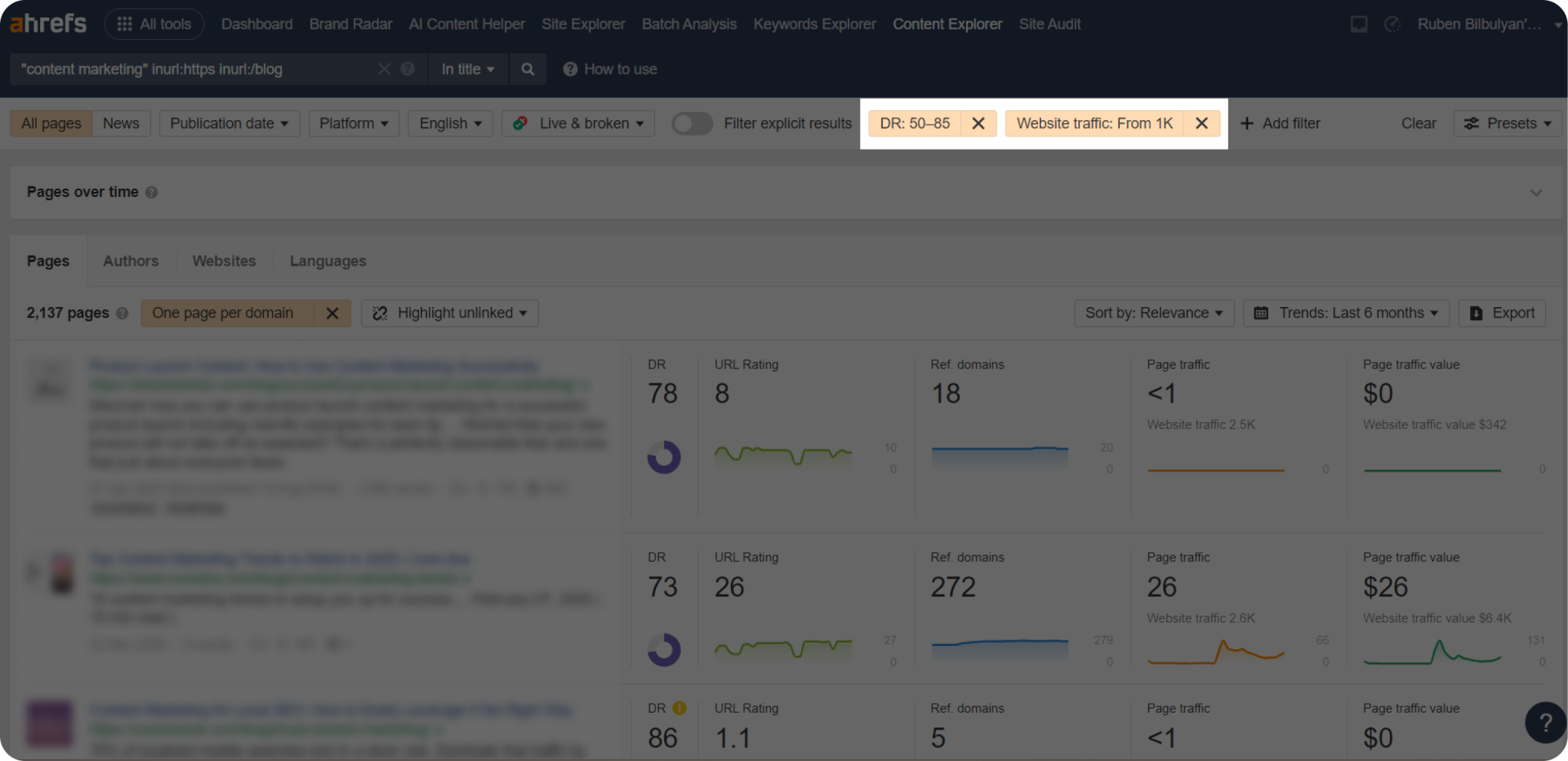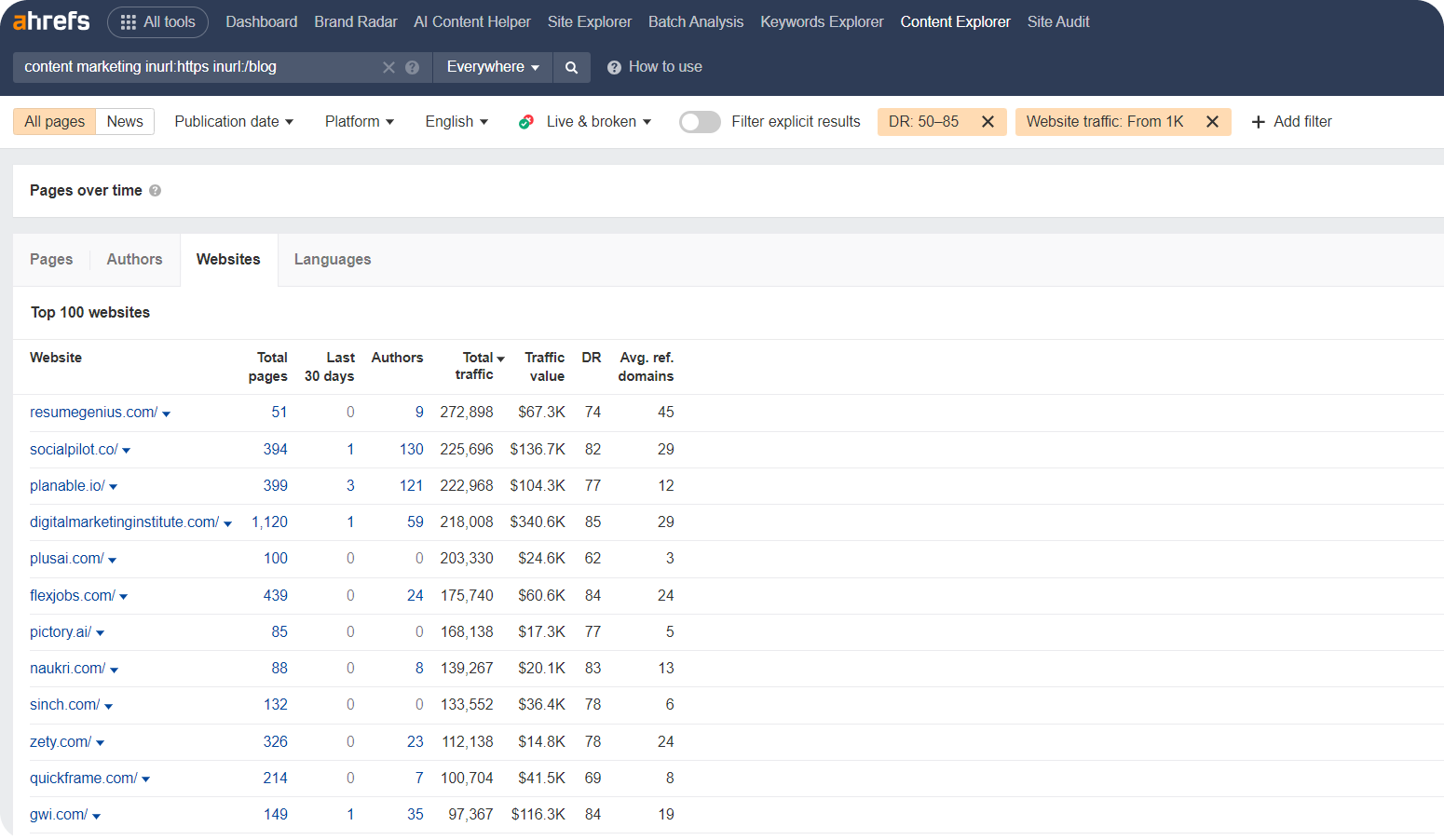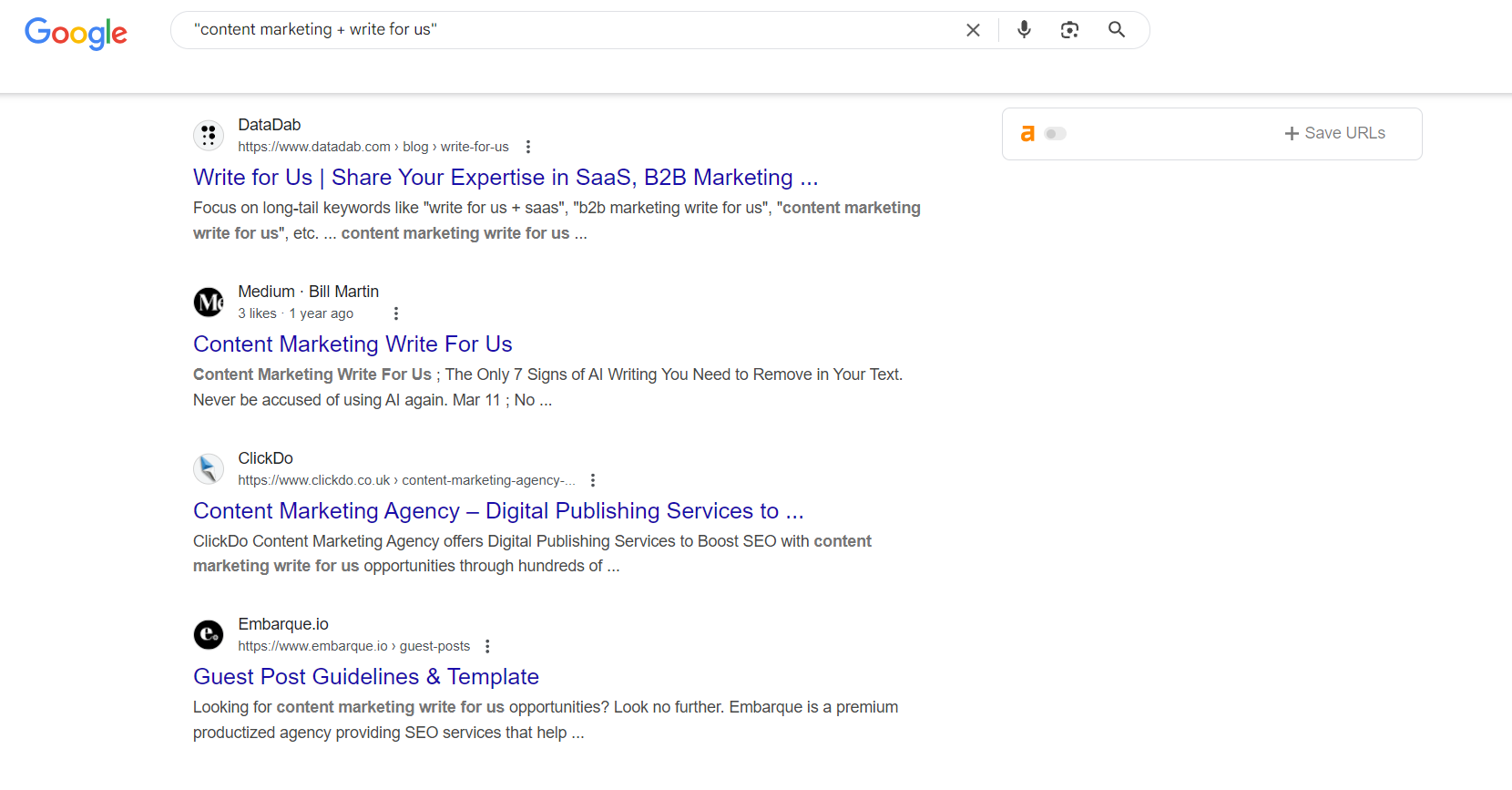You’ve probably heard about guest posting a hundred times. And yes, it’s still a thing in 2025.
But there’s a big difference between writing just any guest post and one that actually works.
In this guide, we will explain what guest posting is, why it still works, and how to find guest posting sites. Plus, we’re sharing some free guest post outreach templates, so you’re not staring at a blank email wondering what to write.
Let’s get into it!
What is Guest Posting?
Guest posting is an SEO strategy that involves writing and publishing content for a third-party website.
It’s a win-win solution for both guest writers and the host website. The website gets relevant content for its blog, while the writer increases their reach through a new audience.
But there are more benefits that guest posting comes with. Let’s explore them!
3 Main Benefits of Guest Posting
Here’s why guest posting is a powerful SEO strategy.
Increased Domain Rating and Traffic
Guest posting can improve your site’s domain rating. Curious how?
When you publish a guest post on another website, you can get a link back to your own website in return. However, it should be relevant and come from a trusted source to help your rankings.
The more good backlinks you build via guest posting, the stronger your website’s link profile will be. A strong backlink profile sends positive signals to search engines about your site’s trustworthiness and expertise in a certain industry.
Along with increased domain rating, you can also improve traffic. When you write guest posts on relevant sites with high traffic, you can increase your website traffic too. If readers find your content engaging, relevant, and informative enough, they will visit your site for more information or explore your products/services. Cool, right?
Further reading:
Key Link Building Metrics
Improved Brand Awareness and Conversions
Brand awareness is another benefit of guest posting.
If you submit a guest post that is informative, engaging, and reflects your expertise, you’re on the right track to building a good brand reputation. People tend to trust businesses and companies that are experts in their industries.
As a result, customers are more likely to remember your brand when they need your products or services. That’s why it’s important not only to create strong branding but also to bring it to life effectively, which is something a good design-to-code service can help achieve. Moreover, the right branding and its elements play a huge role here. This involves brand name, mission, vision, voice, messaging, and logo crafted with the help of a professional logo maker.
By offering valuable insights and useful advice, guest posting allows businesses to establish themselves as authorities in their industry, convert prospects, and build trust with them.
By addressing customer pain points and needs and providing solutions, guest posts can also position businesses as problem solvers, making potential customers more likely to seek out their products/services and enhancing the customer success process overall. Eventually, the number of leads and conversions will increase for the business.
Broader Audience Reach
Publishing a guest post on other websites lets you connect with broader audiences, other than your target audience.
For example, if you write about productivity on your blog and you guest post on a wellness site, you might connect with people who care about a better work-life balance. They weren’t looking for you, but now they’ve found you.
What No One Tells You About Guest Posting
Guest post backlinks are simple in theory. You write for someone else’s website, and in return, you get a backlink.
It’s a great way to improve your SEO, promote your brand, and get in front of new people. Sounds pretty great, right? And it is, mostly. But there’s a catch:
- It’s time-consuming. Finding the right websites, writing content, and outreaching isn’t quick.
- Long publishing timeline: Some sites move fast, but others might take weeks or even months to respond or publish your guest post.
- Scaling is tough. It’s hard to consistently find legit and relevant websites to contribute to.
- Results aren’t guaranteed. You may send out 10 emails and only hear back from 2. So, you can’t really know how many guest posts will go live.
While guest posting comes with a set of challenges, it’s still worth trying. Patience is key, though!
How to Find Guest Posting Opportunities: Our Approach
We often use Ahrefs for link building. And yes, guest posting is not an exception. Here’s how we find guest posting opportunities.
Step 1: Choose your topic
Finding the right blogs to pitch starts with having a clear topic in mind. For example, if you want to write about content marketing, that’s your starting point.
Once you choose a topic, prepare a few blog titles. These will come in handy when you’re reaching out to editors. Here’s how you can organize your guest post topics and titles using a spreadsheet.

Step 2: Use Ahrefs’ Content Explorer:
- Go to Ahrefs and open the “Content Explorer” tool.
- Type in your topic, like this: content marketing inurl:https inurl:/blog. This helps you find secure websites that have active blogs.
You’ll now see a long list of results, but not all of them will be a good fit. Apply these filters to find better matches:
- Domain Rating (DR): Set it between 50 and 85, for instance
- Website Traffic: 1,000+
- Language: English
- One Page Per Domain: Turn this on to avoid repeats

Once your filters are set, click on the “Websites” tab to see a list of potential sites.

The next step is preparing a compelling guest post pitch that emphasizes your expertise and your value proposition.
Before you start sending emails, we recommend cleaning up your Ahrefs data for outreach. Watch our video that walks you through the exact steps we take to clean and organize outreach data for better results.
Once you have clean and accurate data, you can start a guest post outreach campaign.
But hey, we’ve got some additional ways to discover guest blogging opportunities. Check them out!
Bonus Tips to Find Guest Posting Opportunities
Use Google Search
Google Search is another effective and easy way to find websites for guest posting.
All you need to search for is “niche + write for us” to find relevant websites that accept guest post contributions (see the screenshot below).

Once you have your list, don’t just rush to pitch. Take a moment to analyze each website. Pay attention to:
- What kind of articles do they publish?
- Do they match your style or expertise?
- Is the website trustworthy and regularly updated?
Pro tip: Check out the hosting website’s guidelines for guest post. It’ll give you a better idea of what they’re looking for, what to include in your outreach, and how to increase your chances of getting your guest post approved. Skipping this step is an easy way to get ignored. Need an example? Here’s a quick video walkthrough of HubSpot’s guidelines, which also include a link to guest post submission form.
Knowing this information upfront helps you avoid wasting time on irrelevant or spammy sites.
Use LinkedIn
LinkedIn is not only a great platform for job hunting but also a powerful tool for finding guest posting opportunities.
Write a quick post letting your network know you’re looking for websites to contribute to. Something like “I’m looking to write a guest post on [topic]. Know anyone who’s accepting contributors?” is a simple way to get started.
Why does this work? Your connections might know someone who runs a blog or can introduce you to the right editor. You’d be surprised how many people are happy to help when you just ask.
Guest Post Outreach Templates
Template #1
Hey {{Name}},
How about updating your website’s content?
I would love to contribute to your blog by writing articles that will rank and bring more visitors to your site.
Here are several title ideas I have had while going through your website.
1. {{Topic 1}}
2. {{Topic 2}}
3. {{Topic 3}}
Let me know which of these could work for you, and I will start working on the outline.
Best,
1st follow-up message
Would like to see some examples of our previous works? Check these out.
{{Article 1}}
{{Article 2}}
{{Article 3}}
Want us to write one for you as well?
Best,
2nd follow up message
As I’m not getting any reply, I guess this is my last email.
In case you change your mind, I’d still be happy to hear from you.
Template #2
Hey {{Name}},
I’m reaching out to see if you’re accepting guest posts at the moment.
I’ve come up with some title ideas that I think would interest you:
{{Topic 1}}
{{Topic 2}}
{{Topic 3}}
If this sounds good to you, I would like to write a guest post on any of the mentioned topics, or any other that may interest you.
No waiting to see your positive response to my offer!
Best,
1st follow-up message
Hey {{Name}},
Here are some posts we have written in the past.
{{Article 1}}
{{Article 2}}
{{Article 3}}
Thank you, and I am looking forward to hearing from you.
Best,
2nd follow-up message
Hey {{Name}},
I guess this is a goodbye for us.
I am always here in case you change your mind.
Best,
Conclusion
Guest posting still works only if you do it right.
It takes time, patience, and the right strategy. Focus on writing helpful content, reaching out to the right websites, and staying consistent.
Follow our tips and recommendations, and you’ll start seeing real results. Good luck!
FAQ about guest posting
Which practices should you avoid when doing guest posting?
Pitching to irrelevant websites, writing poor content, and not following the host site’s guidelines are some of the mistakes to avoid when guest posting.
Is guest posting black hat SEO?
No, guest posting is not black hat SEO. It’s considered a white hat strategy as long as you write relevant and helpful content that adds value.
Is guest posting free or paid?
It can be either. We recommend sticking with free opportunities, as they’re safer for SEO and offer better long-term results.
Quiz Time
Let's put your knowledge to the test.
Leave your email below to get a SayNine certificate!
Are you sure?









